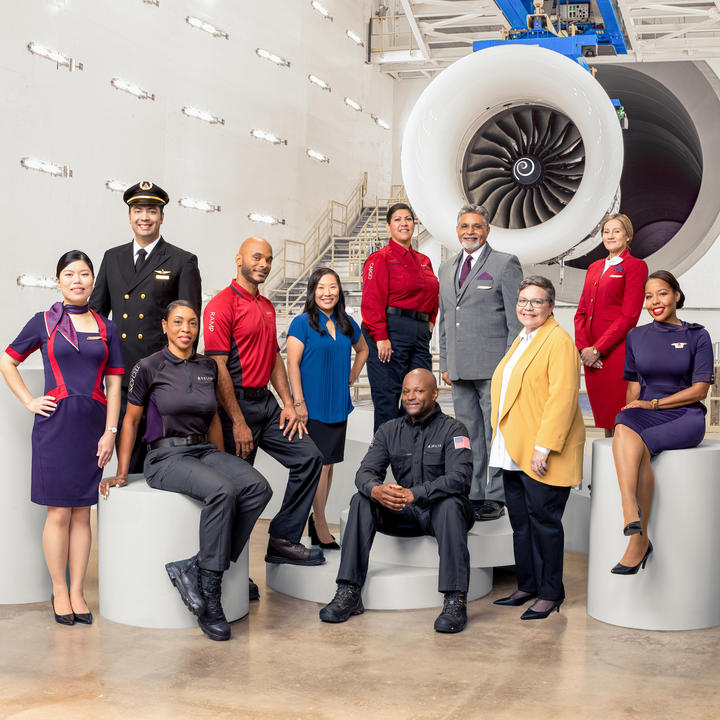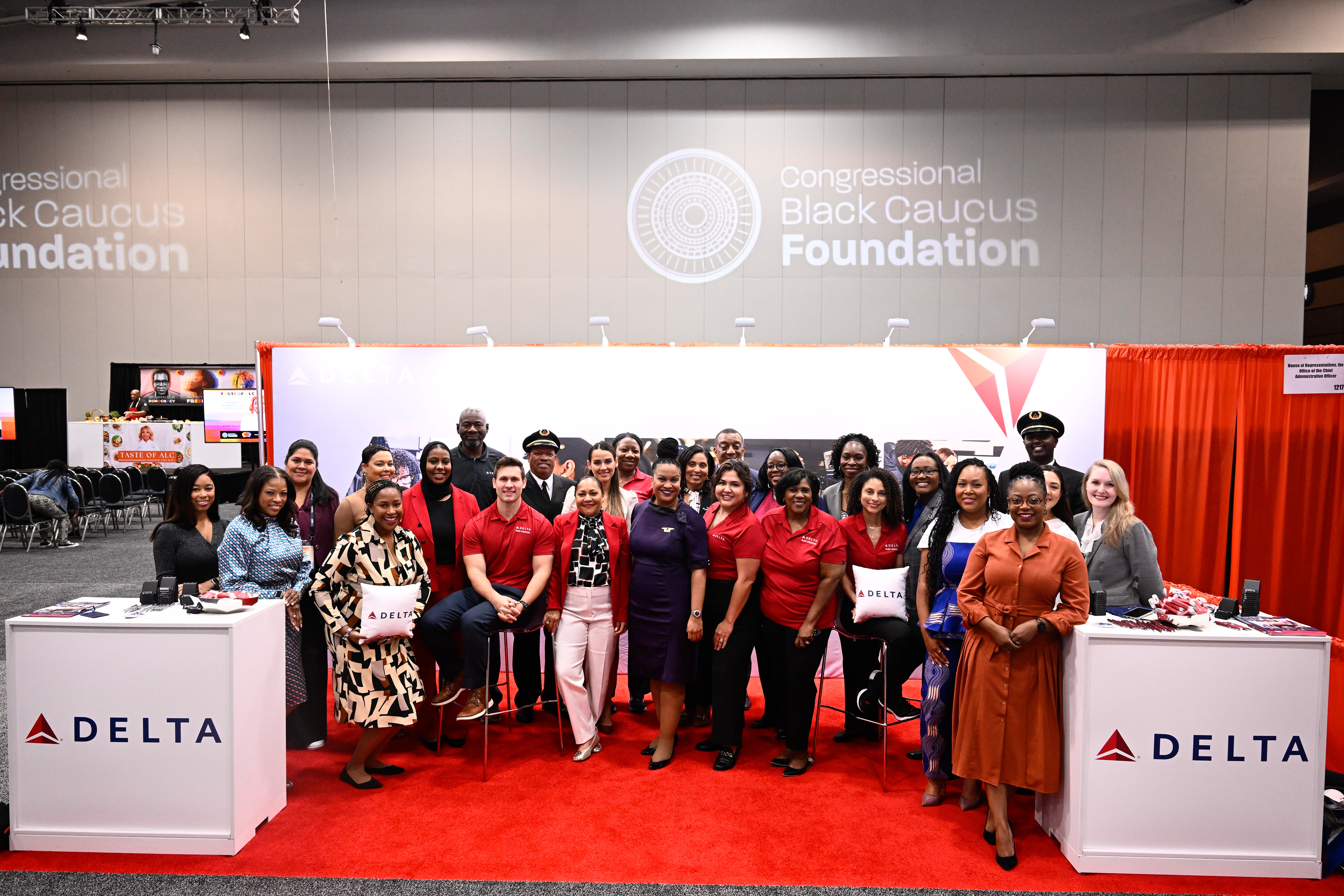How Delta and its partners continue to lead the way on the future of workforce wellness
This is the second year Delta’s D.C.-based Government Affairs team has led important conversations at the CBCF conference, the leading policy event on issues impacting the global Black community. Participating in and contributing to the conference reflect Delta’s ongoing commitment to a journey to build a more inclusive and equitable workforce.

Equity at all levels, real action and wholistic wellness are just a few of the keys to fostering the positive evolution of the workplace. Those topics were front and center as Delta participated in the 52nd Annual Legislative Conference of the Congressional Black Caucus Foundation (CBCF) in Washington, D.C.
This is the second year Delta’s D.C.-based Government Affairs team has led important conversations at the CBCF conference, the leading policy event on issues impacting the global Black community. Participating in and contributing to the conference reflect Delta’s ongoing commitment to a journey to build a more inclusive and equitable workforce.
Delta V.P. and Chief DEI Officer Keyra Lynn Johnson moderated, “Wellness is the Motive: Fueling the Future of Workforce Wellness” which highlighted the disruptive and critical work of Delta partners to accelerate measurable change in the way we do business — from reimagining our talent strategies and hiring practices to providing employees with resources for financial empowerment.
“At Delta, our commitment to equity is unapologetic, and it starts with our CEO. But the reality is, it doesn’t end with our CEO – it’s something that we’re talking to our employees about at every level of the organization,” Johnson said in her remarks. “We also know that talking about it isn’t enough if talking about it doesn’t manifest into real actions, and if our real actions don’t translate into systemic change.”
The conversation dug deep into the interconnected elements of health and wellness through the lens of equity, inclusive of mental and financial health. The participants acknowledged that all individuals, regardless of their background or circumstances, should have equal access to tools and resources necessary for holistic wellness.
“Delta and their corporate partners are expanding opportunities and creating a more inclusive and balanced foundation for everyone to thrive,” said U.S. Rep. Nikema Williams (D-Ga.), who represents the district that is home to Delta’s global headquarters in Atlanta. “These initiatives are examples of best practices that can be adopted and replicated in the workplace across various industries to advance equitable outcomes and solutions that will enable a happy, healthy and thriving workplace.”
While all aspects of wellness were discussed, there was a particular focus on the role financial health plays in overall wellness – covering programs that range from empowering adults and children through financial literacy, to offering debt free education, to closing opportunity gaps for those without four-year degrees.
“All wellness domains are interconnected,” said Rebecca King, Delta’s GM – IFS Health & Wellness Program Integration. “When you are worried about finances and emergency savings, this can impact your emotional wellbeing – which can impact physical health. This is why Delta delivers resources and programs to support employees’ physical, emotional, social and financial wellness, which creates opportunities, a culture of inclusion and diversity and helps our people holistically.”
Operation HOPE
“I didn’t learn about credit reports in the third grade. I didn’t learn how to file taxes while in college. I didn’t learn about investments in middle school,” Austin said. “These are all critical components that we need to survive, so that’s where Operation HOPE comes in.”
Meanwhile, Pamela Everhart – Fidelity’s S.V.P. and Head of Regional Public Affairs and Community Relations shared details about Fidelity’s robust employee volunteer program that supports students and teachers by ensuring teachers have the proper resources and tools to teach their students about financial literacy. She also highlighted the company’s Invest in My Education initiative
OneTen
“Sixty-six percent of all Americans who are of working age do not have a four-year-degree – and yet, 71% of all jobs that pay more than $40,000 a year and 79% of all jobs that pay more than $60,000 a year require a four-year degree,” said Matthew McGuire – OneTen’s Chief Business Development Officer. “So what we were launched to do is to help companies really think differently about HR practices, and to start opening the doors by focusing on skills, not the credential.”
The full panel will be available to view at CBCFinc.org

